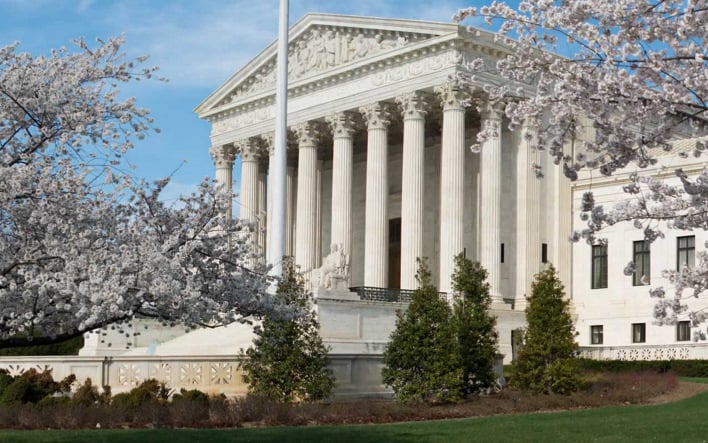Supreme Court Sides With Google Over Oracle In Landmark Android Fair Use Case

It seems that the fight between Oracle and Google is coming to a close, or at least has hit a major stumbling block for the former. The U.S. Supreme Court sided with Google over a copyright dispute involving code used in Android, the popular mobile operating system. It seems Oracle's only recourse now would be to request a rehearing in the next 25 days, and it likely will not go down without a fight.
Nearly 11 years ago, in August 2010, Oracle accused Google of infringing on its copyright by utilizing roughly 12,000 lines of code to build Android. As Oracle America, Inc. v. Google Inc. Filing 36 explains, "the infringed elements of Oracle America's copyrighted work include Java method and class names, definitions, organization, and parameters; the structure, organization and content of Java class libraries; and the content and organization of Java's documentation." Furthermore, Oracle claims that in "several instances," code was copied verbatim from Oracle into Android. However, Oracle cites some code here that was seemingly available for redistribution or modification under the GNU General Public License.

Over the years, the case has made its way up the court system to the U.S. Supreme Court, where the ruling was handed out today. The final decision was 6-2, claiming that Google's use of the code was under the purview of fair use. Justice Stephen Breyer delivered the decision, which stated the following:
We reach the conclusion that in this case, where Google reimplemented a user interface, taking only what was needed to allow users to put their accrued talents to work in a new and transformative program, Google's copying of the Sun Java API was a fair use of that material as a matter of law.However you may feel about the case, it is certainly an interesting look into the world of computer programming. Moreover, the application of fair use here could have rippling effects, with similar cases popping up in the future. In any case, let us know what you think of the court's decision in the comments below, and stay tuned to HotHardware to see if Oracle continues its fight.

